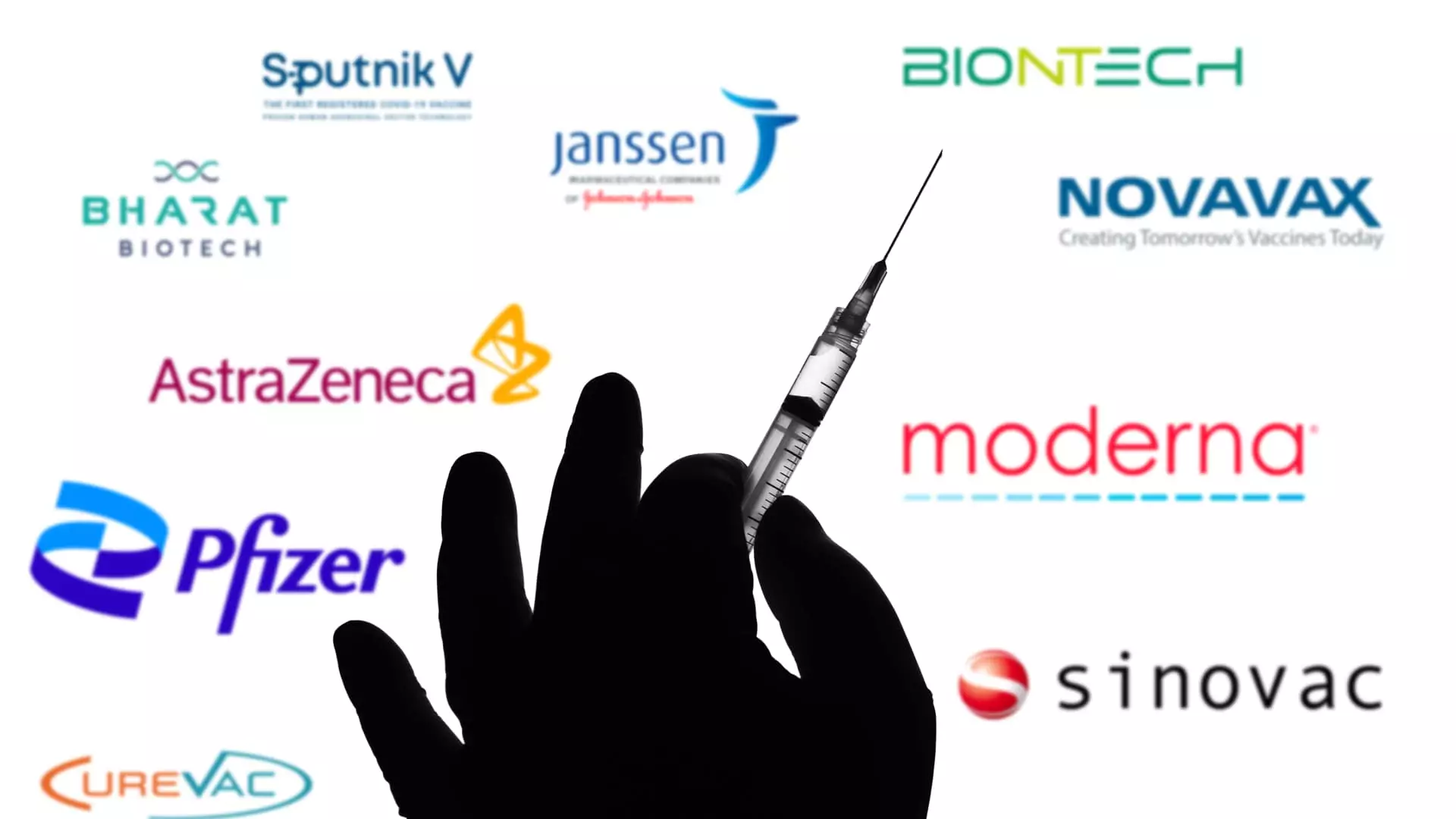The departure of Peter Marks from his pivotal role as the Food and Drug Administration’s (FDA) lead vaccine regulator signals a disturbing trend in the landscape of public health and biopharmaceutical innovation. His resignation, motivated by a vehement clash over vaccine safety beliefs with Secretary of Health and Human Services Robert F. Kennedy Jr., raises alarm bells—not only about the future approval processes for vaccines but also about the broader implications for scientific integrity and public trust in health institutions. In an age when misinformation proliferates at alarming rates, the fallout from this resignation implicates both immediate financial repercussions and long-term public health outcomes.
Marks was recognized for his role in developing protocols for Covid-19 vaccines, ensuring that crucial advancements got to the public quickly and safely. His exit from the FDA, amid accusations of “misinformation and lies” against Kennedy regarding vaccination, draws attention to the broader dilemma: What happens when scientific voices are silenced in favor of titular leadership? The markets reacted swiftly, with shares of major biotech firms plunging as skepticism permeated the air. This financial response encompasses a layer of panic that stems from uncertainty; the market does not merely reflect numbers, but confidence—confidence that underpins research investments, legislative support, and healthcare partnerships.
Financial Markets: An Immediate Reaction
The impact on shares of companies like Moderna, Novavax, and Pfizer illustrates that financial markets are far more than a simple reflection of economic indices; they are barometers of sentiment and trust. When critical figures in the vaccination arena step down, it casts a long shadow over the stability of companies reliant on an untainted approval process. Moderna and Novavax notably experienced double-digit decreases in share value, destabilizing their market positions during a time when successful vaccination campaigns are paramount.
While Pfizer’s broader business model may give it some insulation, the ripple effects are clear: a decline in vaccine confidence can have cascading implications across the health sector. Analysts at BMO Capital Markets identified Marks’ resignation as a critical blow to the FDA’s reputation for scientific rigor, emphasizing the urgent need for resourceful and unprejudiced decision-making within this vital regulatory body. This isn’t just about individual companies—it’s about the ecosystem that sustains public trust in health interventions.
Tensions Between Science and Politics
Kennedy’s stance against vaccinations represents not merely an ideological clash but a fundamental challenge to the scientific community’s credibility and the healthcare norms that society has come to accept. Marks’ commentary on a Texas measles outbreak underscores a shocking reality; the decline in public belief exacerbated by influential leaders threatens to roll back the significant progress made in the fight against preventable diseases. The tone of Marks’ resignation letter reveals how seriously he perceives the implications of undermining vaccine efficacy—a cornerstone of public health.
Kennedy’s administration is already moving towards policies that could ostensibly discourage vaccinations, focusing on promoting discredited treatments while launching studies into debunked connections between vaccines and autism. Such actions run contrary to decades of scientific consensus and could lead to another health crisis if left unaddressed.
Rebuilding Trust: A Long Road Ahead
The conversation around the FDA’s future leadership becomes crucial. Analysts express cautious optimism if the new appointment can restore some faith in the FDA’s commitment to science. However, the challenge remains significant. Both Kennedy and his supporters hold substantial influence, and any new commissioner must navigate a minefield of skepticism and political pressure. As Americans grapple with what appears to be a populist wave against established scientific consensus, any weaknesses within the FDA could further empower this movement.
In these troubling times, it is essential to align seasoned expertise with accountability to reestablish public trust. Speculation about personnel changes at the FDA should spur valuable discourse on finding leaders who blend scientific integrity with the ability to communicate effectively. Without this, the looming specter of misinformation threatens to darken our public health landscape, jeopardizing the principles that form the bedrock of modern medicine.
A delicate balancing act has emerged, pitting scientific truth against politicized narratives. Restoring confidence in vaccines and the faith placed in regulatory bodies is no small task—but it is non-negotiable if we hope to avert health crises and build towards a healthier future for generations to come. The urgency of rebuilding trust, particularly in vaccine efficacy, cannot be overstated—especially in an era defined by uncertainty and skepticism.

